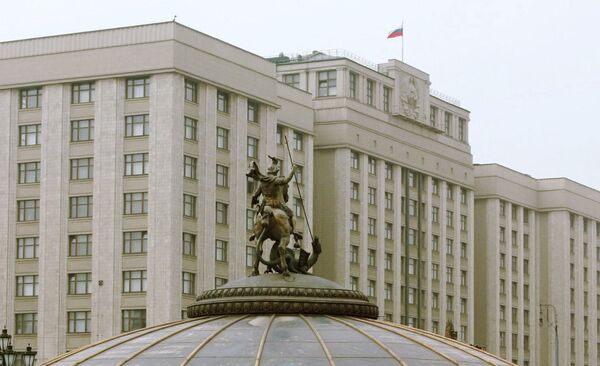MOSCOW, April 16 (RIA Novosti) – Russia’s lower house of parliament, the State Duma, passed on Tuesday in the first reading a bill that would significantly alter the current parliamentary electoral procedures.
The bill, submitted to the State Duma by President Vladimir Putin, was backed by 296 lawmakers and opposed by 148, with a minimum of 226 votes necessary for approval.
The proposed legislation reintroduces voting for individual candidates in parliamentary elections and an equal split in the 450-seat chamber between directly-elected legislators and those chosen from party lists.
Candidates running for direct election to the Duma, rather than via party lists, would be required to present signatures in support of their bid from 0.5 percent of potential voters in their electoral district.
Candidates would also be allowed to run simultaneously in direct elections and via the party list.
The bill does, however, forbid parties from forming the so-called electoral blocs, a blow to smaller parties that often lack the resources to ensure nationwide representation at elections.
All registered candidates would be entitled to free air time for electoral campaigning, and the maximum elections budget is set at 700 million rubles (some $3.3 million) for a political party and 15 million rubles (about $500,000) for an independent candidate.
Electoral reforms introduced by Putin in 2003 and 2004 scrapped voting for individual candidates, as well as direct elections for regional governors, leaving the president as the only individual elected directly by voters on a federal level.
Opponents of the new bill claim that the proposed legislation is aimed at ensuring that the ruling United Russia wins as many parliamentary seats as possible during next Duma election in 2016.
United Russia won less than 50 percent of the vote in 2011 amid accusations of fraud and power leveraging.


